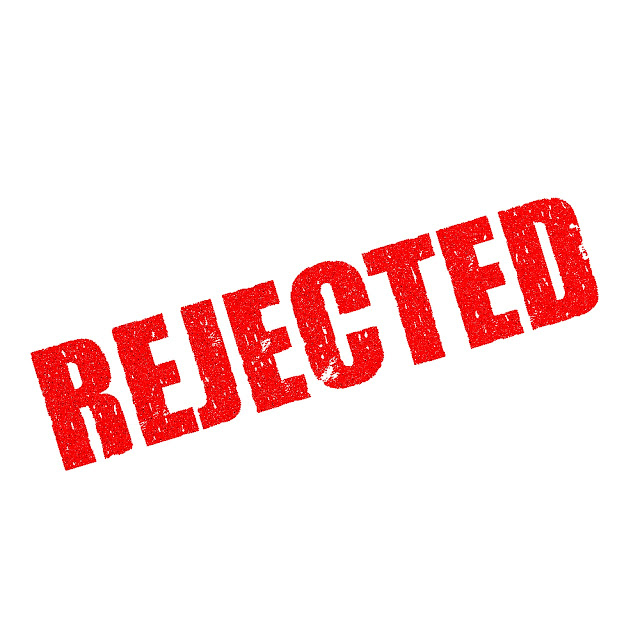
***13 Apr 2022 UPDATE: My story, "100 Ways to Pass as Human", is now live on Daily Science Fiction! I hope it brings you joy.
***3 Jan 2022 UPDATE: Since writing this blog post, I learned that another one of my submissions was accepted, meaning I actually had my two first-ever fiction sales from my 2021 submissions! This piece is a science fiction short short story (i.e., flash fiction) and was accepted to a publication that pays professional rates! I'm so thrilled and will share the piece once it's out in the world.***
I love New Year's resolutions and I'm usually pretty good about sticking to them the whole year. I find goal-setting very motivating and personally use each new year as an opportunity to challenge myself and stretch outside of my comfort zone. At the end of last year, I decided 2021 would be a year to confront the natural human fear of rejection. Inspired by a post I read online about a successful, published writer who seeks to earn 100 rejections each year, I decided I would shoot for 50 rejections in 2021.
Most of those were creative writing rejections, but I counted a few examples where I applied for something (like an internal job opportunity at the Embassy where I work) or put myself out there and was turned down (as I did when a scholar rejected my invitation to speak on a panel I organized as part of my volunteer work).
I learned so much from repeated rejection and am happy I completed this resolution. Here are some of my takeaways (in no particular order):
- My skin got thicker. It's only natural that we all want to be liked and accepted and praised. But rejection is part of life (and personal growth), so receiving it more than usual helped me toughen up my response to it.
- Making a rejection goal helps you maintain a positive outlook. It's always disappointing to be turned down for something, but at least during 2021 each rejection brought me one step closer to my yearlong goal of 50 rejections.
- Pursuing rejection means aiming higher. I submitted my work to publications I would only dream of one day accepting something I wrote because an openness to rejection gave me greater courage to shoot for the stars. After all, if the worst that could happen was that they rejected me then I had already prepared myself well for that possibility.
- In the case of writing or similar creative pursuits, you need material before you can even try for rejection. I wrote more pieces, entered more writing contests, and polished and edited more rough drafts this year simply because I knew I would need them to reach my goal. In the process, I developed better writing habits and experience.
- The same thing that makes rejection sting (putting your heart and soul into something and offering it up for someone else's consideration) is also what leads to success. In 2021, I'm proud to say I succeeded in publishing my creative writing for payment the very first time. (Hey, it was $40 for a short story, but it's something!) I also noticed a major improvement in feedback from editors at publications I love: at first they only sent me form rejections, then nicer form rejections, and now more and more often I am receiving personalized feedback and even encouragement from editors to try again in the future. When I go back and read my writing from last year or even at the beginning of this year, I can really tell the difference.
- There is an opportunity to learn from every rejection. With my fiction, for example, I didn't just spam editors. I reviewed my work after every rejection, seeing if there were places I could improve and edit. As some rejections took many months, I often found my fresh and more practiced eyes could almost always find things I wanted to change before I resubmitted. And over time, I became more efficient at revising my older pieces. Eventually, I made the decision to put aside some of my earlier writing because I felt I had improved significantly since I wrote those pieces and a simple edit wouldn't suffice. I would need a full rewrite to be confident submitting some of them again.
- I sought out and benefitted from resources where people I admire talked about their experiences persevering through rejection. The statistics and advice on Richard Thomas's piece "Storyville: Surviving Rejection" had a huge impact on me and helped push me to keep going.
Another writer suggested trying a submission goal in the future instead of a rejection goal, since rejections and acceptances are out of your control but submissions aren't. I thought this was wonderful advice, but I still think the rejections goal helped me see little wins in every rejection that otherwise might have only been disheartening. If you find yourself in a bit of a plateau in whatever your goals are - creative, academic, professional, personal - and benefit from targeted New Year's resolutions, then I highly recommend giving 50 rejections a try.
















